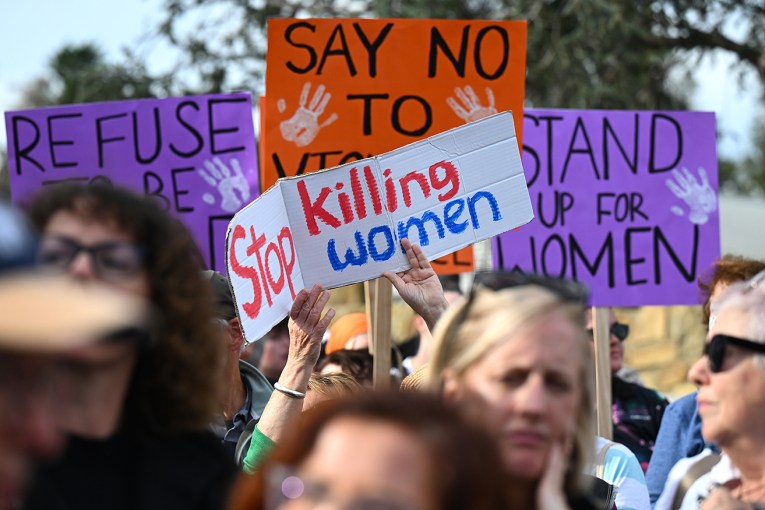No will, no headway: Why a federal ICAC doesn’t exist despite years of promises

Gladys Berejiklian is hardly the first politician to squirm from the heat of the NSW Independent Commission Against Corruption’s spotlight.
After a week where the Premier’s reputation has been tarnished by her relationship with former Liberal MP Daryl Maguire being made public in an explosive hearing, she maintains she did nothing wrong.

NSW Premier Gladys Berejiklian. Photo: AAP
Since then, the former Liberal MP has admitted to using his parliamentary office and resources to conduct private business dealings, including receiving thousands of dollars in cash as part of a visa scam.
The question remains as to how much Ms Berejiklian knew, and when. And so, Ms Berejiklian remains the Premier of NSW.
For now.
The list of names interrogated by the powerful anti-corruption watchdog is long. Former Premier Barry O’Farrell was forced to resign over misleading statements about a $3000 bottle of wine after an investigation which also claimed the political career of police minister Mike Gallacher.
Meanwhile, disgraced Labor powerbroker Eddie Obeid was caught up with multiple ICAC investigations leading to criminal convictions, while former Labor Resource Minister Ian McDonald was embroiled in legal proceedings.
Yet, despite the growing number of dodgy schemes uncovered by state-based anti-corruption bodies, there is still no independent body focused on stamping out malfeasance at a federal level.
And it’s unlikely there will be any time soon.
No will, no headway
The work of the state anti-corruption bodies has come into sharp focus in recent days, weeks and years, but federal cabinet minister Simon Birmingham says the Morrison government has been too busy with the coronavirus pandemic to establish a federal integrity commission.
The federal government has promised since January 2018 to establish a national integrity commission, and in December of that year announced it would create a body called the Commonwealth Integrity Commission.
Damning audits into the grossly inflated Western Sydney Airport land purchase and the sports rorts affair have fuelled further calls to fast-track the process.
Leaked federal government talking points on Thursday reveal that although the government says it ‘remains committed’ to the body, it won’t progress to draft legislation until after the coronavirus crisis has abated.

Simon Birmingham says the federal government has been focused on the health crisis caused by the pandemic.
Senior law lecturer Dr Yee-Fui Ng says the simple fact is the government isn’t keen to implement a fully-fledged independent national integrity committee because of the risk it would pose to its MPs.
“It is not in their own self-interest to create a powerful body that could dig up the dirt on their own actions,” Dr Ng told The New Daily.
“This is why they have proposed a watered-down version, with limited powers and a high threshold for investigation that is difficult to satisfy.”
Instead, the idealised version of a federal ICAC would have broad jurisdiction and be able to investigate allegations of corrupt conduct.
In addition, it would “have a division that is responsible for corruption prevention for a strategic longer-term view, and possess strong investigative powers, including the power to conduct public hearings.”
“Its budget should also be protected, for example, be approved by a parliamentary committee,” Dr Ng proposes.
Not all watchdogs are made equal
While calls for a National Integrity Commission have grown louder, there are a number of different models it could ultimately emulate.
And they are not all made equal.
There are significant gaps in the powers of federal agencies charged with scrutinising the public sector and the Commonwealth government.
For example, no federal agency has the power to investigate corrupt conduct as state-based commissions do, which includes any behaviour that affects the honest and impartial exercise of public office.
Further, no agency can investigate misconduct of MPs, ministers or the judiciary. While the AFP has some ability to use its powers, it is limited to only investigating criminal charges.
Experts say the difference between the model designs would have an enormous impact on how effective a commission would be.

Comparative stats of the state-based anti-corruption watchdogs between 2012 and 2017. Graphic: The Australia Institute
While the Victorian IBAC has had some recent success with its investigation into the alleged corrupt procurement dealings of Metro Trains and V/Line and examination of three state government ministers amid allegations of branch stacking, it is not effective as NSW.
A briefing paper by The Australian Institute in 2018 declared the NSW ICAC was the ideal model, in part due to its regular public hearings.
“These design features have led to NSW ICAC being the most effective of the state bodies, despite receiving less revenue than the other
large state agencies,” author Hannah Aulby wrote.
What comes next?
For now, very little.
While both Liberal and Labor promised a federal integrity commission before the 2019 election, the extraordinarily slow progress since the pre-election declarations suggests a lack of commitment by the Morrison government, Grattan Institute fellow Kate Griffiths said.
“The government’s initial proposal in December 2018 was widely criticised because of significant gaps in its jurisdiction and powers,” Ms Griffiths said.
“Despite kicking off a consultation process in early 2019, and allocating money in the 2019 budget, the government is yet to respond on any of the issues raised or put forward a model.”
While the coronavirus pandemic has become the nation’s primary focus, an integrity commission is long overdue and would have helped protect the public interests during the pandemic, Ms Griffiths said.
“Given that the federal integrity commission was an election promise, I would expect to see it established in some form before the next election.”
“But there has been worryingly little debate on it so far, and this is despite strong calls for reform from minor parties and the opposition.”








